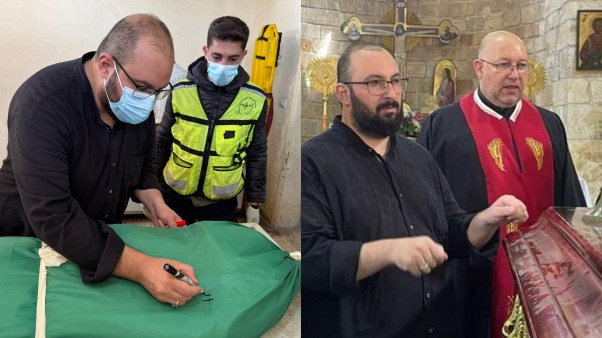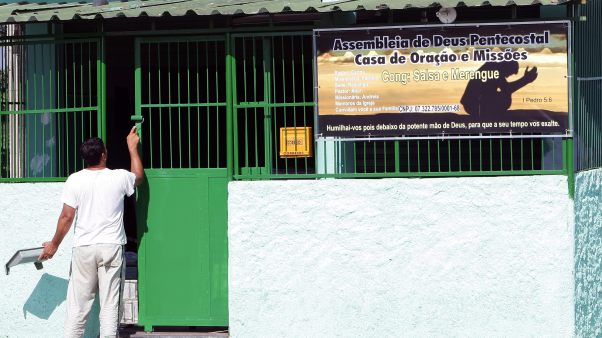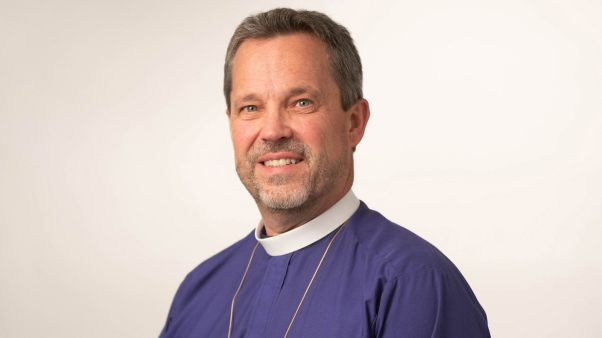Researchers say they’ve found the most religious place on Earth – between the southern border of the Sahara Desert and the tip of South Africa.
Religion is “very important” to more than three-quarters of the population in 17 of 19 sub-Saharan nations, according to a new survey.
In contrast, in the United States, the world’s most religious industrialized nation, 57 percent of people say religion is very important.
“On a continent-wide basis, sub-Saharan Africa comes out as the most religious place on Earth,” said Luis Lugo, director of the Pew Forum on Religion and Public Life, which released the study Thursday.
According to the survey, 98 percent of respondents in Senegal say religion is very important, following by 93 percent in Mali. The lowest percentage was reported in Botswana, 69 percent, which is still a healthy majority.
“That begins to paint a picture of how religious sub-Saharan Africans are,” Lugo said.
The study is part of the Pew-Templeton Global Religious Futures Project. More than 25,000 sub-Saharan Africans responded in face-to-face interviews in more than 60 languages.
While the study confirms that Africans are, indeed, morally conservative and religiously pious, researchers explored a variety of topics, including religious tolerance, polygamy, the role of women in society, and political and economic satisfaction.
Islam and Christianity dominate as the most popular religions in the region – a stark reversal from a century ago when Muslims and Christians were outnumbered by followers of traditional indigenous religions.
But for the past 100 years, indigenous spirituality has been diluted as missionaries carried Islam and Christianity throughout the African continent.
The study reports that the number of Christians in sub-Saharan Africa grew faster than the number of Muslims, from 7 million in 1900 to 470 million in 2010. One in five of the world’s Christians lives in sub-Saharan Africa.
While a majority of African Muslims are from the northern region of the continent, nearly 234 million live below the Sahara Desert.
Indigenous African beliefs have not disappeared, but are often incorporated into Islam and Christianity, the report found. A number of sub-Saharan Africans believe in witchcraft, evil spirits, reincarnation and other elements of African spirituality. More than half of the people surveyed in Tanzania, Mali, Senegal and South Africa believe that sacrifices to ancestors or spirits can protect them from harm.
Mary Dhavale, a native of Tanzania who now lives in Atlanta, describes herself as a “righteous child of Jehovah God” and drives two hours every Sunday to worship at a Pentecostal church. She also said her grandfather was a traditional healer.
“You may call him a witch doctor, but he did good things for the people,” Dhavale said.
Dhavale’s grandfather attended Catholic services for most of his life, even as he concocted herbal drinks and crafted charms to ward off evil spirits or expose petty crimes in the neighborhood.
“If your child is sick or if your car is spoiled, people would go to my grandfather and find out who did it,” Dhavale said.
Such syncretism of religions is not uncommon in Africa.
Sulayman Nyang, a professor at Howard University’s African Studies Department, said by honoring traditional religious practices, sub-Saharan Africans are able to maintain their African identity and strengthen ethnic unity.
However, Nyang said indigenous religions are not practiced in a pure form because Africans want to maintain their “dignity” and “want to be accepted into the new world of modernity.”
According to the Pew survey, most sub-Saharan African Muslims are Sunni. Within Christianity, Catholicism dominates in Guinea Bissau, Rwanda and Cameroon, while Liberia, South Africa, Zambia, Kenya, Nigeria, and Botswana are predominantly Protestant.
Pentecostalism is rapidly spreading and deeply influential across the region, and also across Christian denominations.
“Casting out of the devil or evil spirits, high degree of apocalyptic expectations, the health-and-wealth `prosperity gospel’ is the new Christian phenomenon of the Pentecostalism in sub-Saharan Africa,” Lugo said.
The study suggests that the degree of concern about religious conflict is often interwoven with concerns about ethnic conflict. In Rwanda, for example, tensions between Hutu and Tutsi tribes erupted in the 1994 genocide. Nigeria continues to be wracked by Muslim-Christian violence.
The 19 countries represented in the survey comprise 75 percent of the population of sub-Saharan Africa. The countries are: Botswana, Cameroon, Chad, Djibouti, Democratic Republic of the Congo, Ethiopia, Ghana, Guinea Bissau, Kenya, Liberia, Mali, Mozambique, Nigeria, Rwanda, South Africa, Senegal, Tanzania, Uganda and Zambia.








